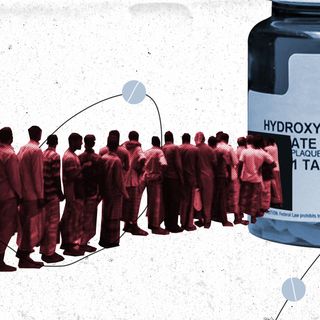
UN Concerned About the Deadly Consequences of Covid19 Myths
Governments around the world have played a major role in propagating misinformation around the pandemic.

Yesterday, the UN expressed concerns over the consequences of people falling prey to myths and misinformation surrounding Covid19, which are putting people at risk by lulling them into a false sense of security. “These misinformation campaigns could literally cost lives. All it will take is a few people, even just one who is infected, not obeying a curfew, not following protocols, to set off a chain reaction. It is one of the major challenges for governments and for the UN across the region,” Sanaka Samarasinha, the UN resident coordinator for the Pacific, told The Guardian.
The UN is particularly worried about the unproven, and frequently false, Covid19 information circulating on social media. Rumors are everywhere: that 5G networks spread Covid19, that the infection does not spread in hot, tropical climates, or that cold, snowy weather can kill the virus; people are sharing fake ‘cures’ such as steam inhalation therapy, or blowing hot air from blow dryers up the nose, or consuming onion and garlic, or even methanol. This has led to the UN collaborating with social media companies to tackle misinformation. Now, while Facebook has started removing content about Covid19 that makes false claims about cures, treatments, or the availability of essential services, or the severity of the outbreak, Instagram has started removing Covid19-related content that is not posted by official health organizations. To deal with misinformation on TikTok, WHO itself joined the video-sharing social network. This plethora of misinformation prompted the WHO to create a regularly updated post on myth-busters on their website.
However, governments around the world have themselves played a major role in propagating misinformation around the pandemic. In the U.S., President Donald Trump has been promoting hydroxychloroquine (HCQ) — a 1940s anti-malaria drug — as a cure for Covid19, despite the fact that the initial study proving its efficacy against the novel coronavirus has been retracted. In another part of the world, Mike Mbuvi Sonko, the governor of Nairobi, distributed bottles of cognac to the poor, claiming that it would offer protection against Covid19, in turn forcing Hennessey to clarify that its alcohol does not possess any such properties. Meanwhile, Brazilian President Jair Bolsanaro dismissed the pandemic as a “little flu,” leading the Brazilian mafia to enforce strict curfews in the country to slow down the spread of Covid19.
Related on The Swaddle:
Debunking the Myths About Covid19
In India as well, PM Narendra Modi has urged Indians time and again to incorporate the immunity-boosting guidelines published on the Ayush ministry’s website to fight the novel coronavirus. These include drinking warm water throughout the day, practicing yoga, using condiments like turmeric, cumin, coriander, and garlic while cooking, and practising steam inhalation therapy, among other things. These tactics, however, do not have any scientific evidence supporting their effectiveness against Covid19. The PM continues to endorse these guidelines despite meeting representatives of the ministry last month to underline the importance of countering and fact-checking unsubstantiated claims of having cures for the novel coronavirus.
“There seems to be barely an area left untouched by disinformation in relation to the Covid19 crisis, ranging from the origin of the coronavirus, through to unproven prevention and cures, and encompassing responses by governments, companies, celebrities and others. When disinformation is repeated and amplified, including by influential people, the grave danger is that information which is based on truth, ends up having only marginal impact,” Guy Berger, UNESCO Director for Policies and Strategies, told UN News this week. He also announced a new UN Communications Response initiative “to flood the Internet with facts and science.”
“We’re not just fighting an epidemic; we’re fighting an infodemic. Fake news spreads faster and more easily than this virus, and is just as dangerous. If we don’t [tackle misinformation], we are headed down a dark path that leads nowhere but division and disharmony. This is a time for facts, not fear. This is a time for rationality, not rumors,” Tedros Adhanom Ghebreyesus, director-general of the WHO, had said at the beginning of the outbreak while addressing the Munich Security conference.
Devrupa Rakshit is an Associate Editor at The Swaddle. She is a lawyer by education, a poet by accident, a painter by shaukh, and autistic by birth. You can find her on Instagram @devruparakshit.
Related


72 Quarantined After Pizza Delivery Boy in Delhi Tests Positive for Covid19
